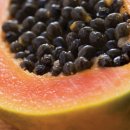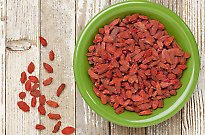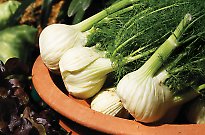
The myths about fat
The myths about fat

In March 2010, researchers from the Children’s Hospital Oakland Research Institute and the Harvard School of Public Health, conducted a meta-analysis of 21 epidemiologic studies involving 347,747 people. They found ‘that there is no significant evidence for concluding that dietary saturated fat is associated with an increased risk of coronary heart disease or cardiovascular disease’.
In addition, leading US scientists recently reinvestigated a highly influential 1966 study that endorsed man-made polyunsaturated vegetable fats (linoleic acid) such as margarine, as a healthier alternative to butter. Their conclusion? Processed polyunsaturated fats increase mortality from cardiovascular disease. Those processed fats (containing trans-fatty acid) promote inflammation in the body, which is a leading cause of heart disease. What many have believed to be the truth for the past 60 years, has now proven to be false.
THE GOOD FATS
Saturated fats are fatty acids that are solid at room temperature and liquefy when heated. Animal-based sources of these fats include butter, ghee, beef tallow, pork and duck fat, while plant-based sources include tropical oils such as coconut oil and palm fruit oil.
The benefits of saturated fats include the following:
- Dietary saturated fats carry vitamins A, D, E and K2.
- They lower lipoprotein, a substance in the blood that indicates vulnerability to heart disease.
- They protect the liver from alcohol and other toxins.
- They enhance the immune system.
- They protect the digestive tract from harmful microorganisms.
- For calcium to be effectively incorporated into the body’s skeletal structure, at least 50 per cent of the dietary fats you consume should be saturated.
- They do not go rancid, even when heated, and so they are an ideal choice for all-purpose cooking.
Mono-unsaturated fats remain in liquid form at room temperature and harden up when refrigerated. Olive, canola and peanut oil and foods such as nuts, seeds and avocados all contain these fats.
Mono-unsaturated fats have many health benefits and are heart-friendly. Like saturated fats, they do not go rancid easily and can be used for low-heat cooking (although saturated fats are much safer for cooking).
Polyunsaturated fats
Unprocessed
There are two types of polyunsaturated fats: omega-6 (linoleic acid) and omega-3 (linolenic acid). Your body cannot make these and hence you must eat foods that contain them. They stay in liquid form, even when refrigerated. They are highly reactive and oxidise easily.
Omega-6 fats are found in vegetable oils such as those derived from safflowers, corn, sunflowers, soy and cottonseed, as well as nuts, seeds, fish, wholegrains and some vegetables. They can be very beneficial to your health when consumed cold, unprocessed and in small quantities. When we eat too much of them in the form of man-made, highly processed vegetable oils, they have a pro-inflammatory effect on the body.
Omega-3 fats have anti-inflammatory properties and are extremely healthy. They are found in fatty, cold-water fish such as salmon, mackerel and herring, as well as in flaxseeds, walnuts, hemp oil and leafy green vegetables. In general, modern cultures consume too little omega-3 fats and too much omega-6 fats.
THE BAD FATS
Eating the small amounts of trans fats that occur naturally in some foods will not harm your health. However, the trans fats created when plant-based polyunsaturated oils are hydrogenated have been linked to countless chronic diseases. This happens in the production of margarine. It is important to note that trans fats are found in most processed foods like frozen pizzas/pasta, baked goods, cereals, ice-creams and take-away outlets where highly processed vegetable oils are used for cooking.
Choose fat wisely
Most people, especially growing children, benefit from more fat in their diet rather than less. But the fats we eat must be chosen with care. Stay away from man-made (processed) vegetable oils and stick to the animal-based fats and some vegetable oils (like olive oil) that have long been part of the human diet.















